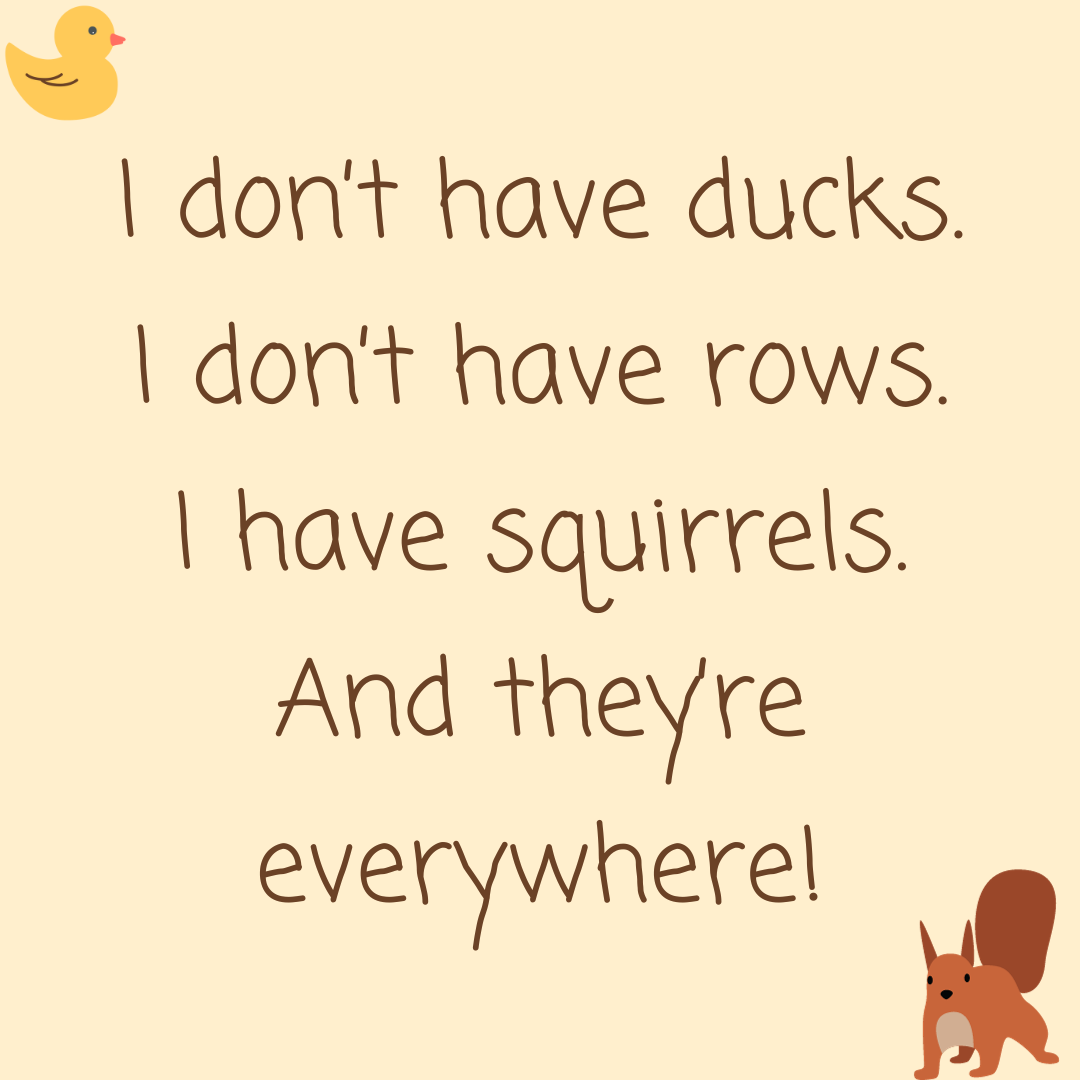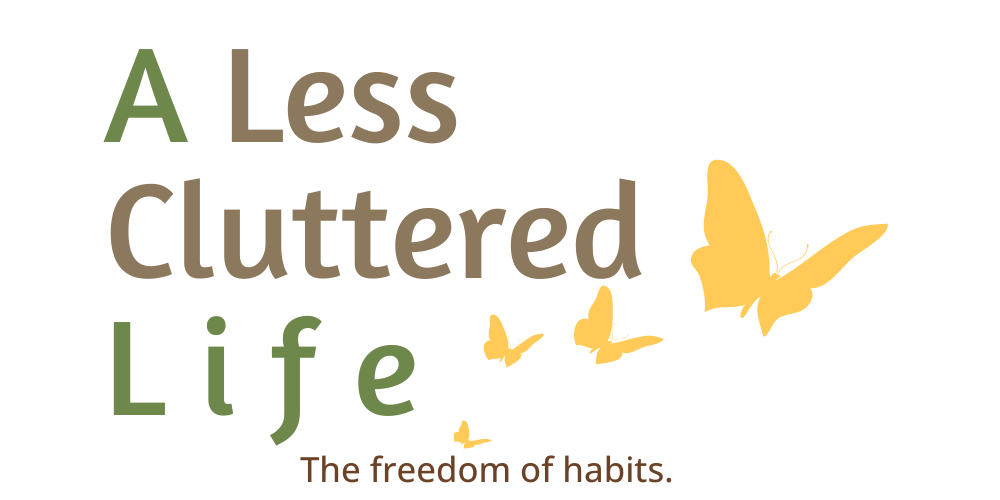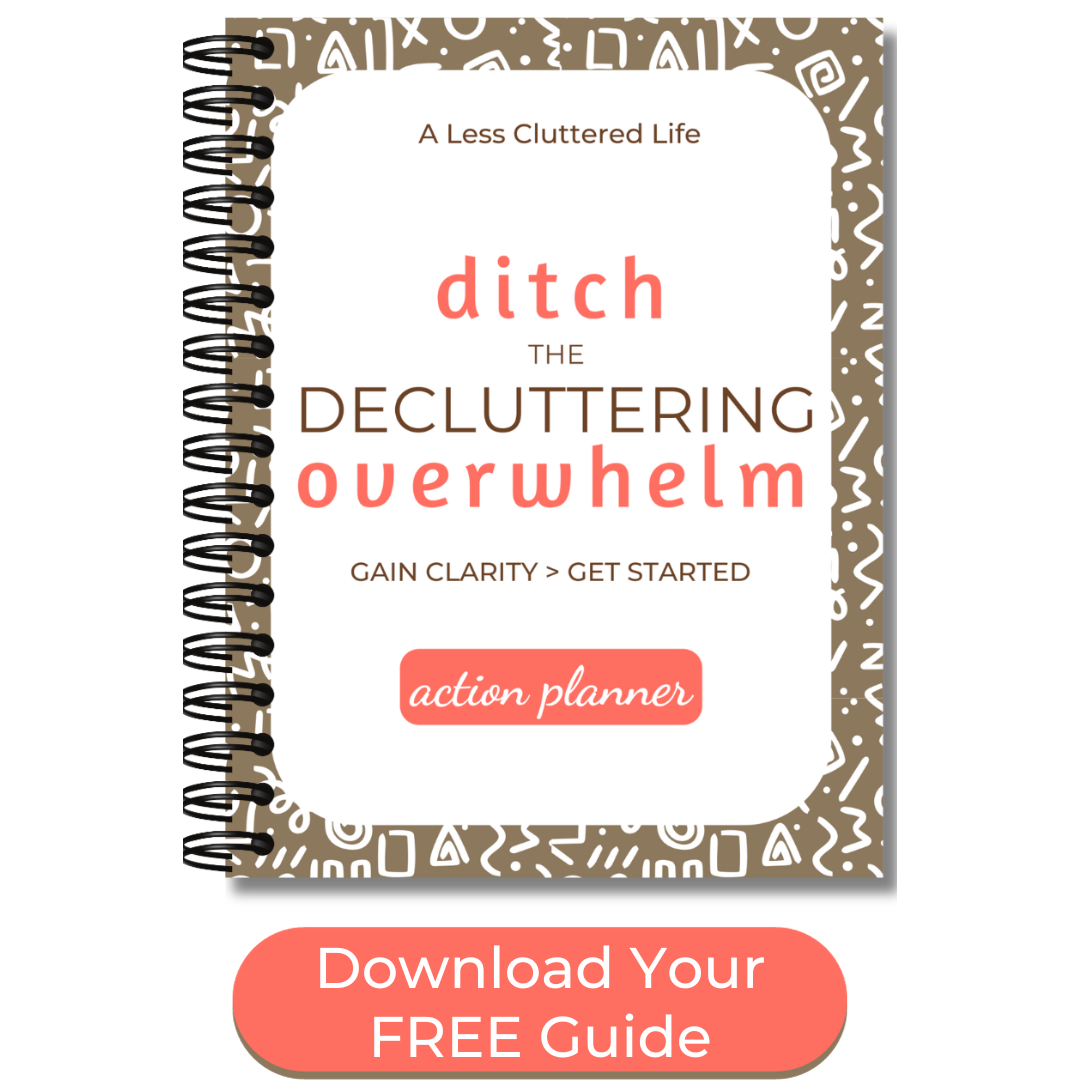 A disadvantage of to-do lists is that they're a bit like running on a treadmill ... lots of effort, but you aren't going anywhere. If you want to achieve your goals, you'll want to make a better to-do list, Here's the ultimate guide for shifting from an overwhelming to-do list to one focused on what you'll achieve today. by Susan McCarthy Yes, I know, why am I using to-do lists when I should be using a planner? But isn’t a planner a to-do list with tasks allotted to time slots? That’s a gross simplification of planners, but I still enjoy to-do lists because then I can cross items off my list. However, I’m always working on ways to improve my to-do lists. I’ve had plenty of days where my list ended up at the bottom of a pile of papers on my desk while I merrily worked on writing a blogpost … only to find my list at the end of the day and realize that the things I did do, weren’t even on my list! I’ve realized that the least effective to-do list is the One List. You know the type … it contains anything and everything you want to get done at some point. You keep adding to it, so it never gets any smaller. And just to get things off the list, you gravitate to the smaller, easier tasks that you know you can do. Every so often, you rewrite the list, so it looks neater. But then nothing looks like it’s been done, so you add some silly tasks to the list just so you can cross them off. It finally occurred to me to sort my One List into multiple lists. As a professional organizer, my job is pretty much about grouping similar things together, comparing them to see what stays and what goes, and then giving everything a home. Guess what? You can do the same with your to-do list. And just as an organized room functions better, so does your life when you organize your lists. Should You Write Down Your To-Do List?Short answer: yes. Longer answer: yes, because you have better things to do with your brain than having it run through a list of the things you want to get done during the day. (And chances are that you’ll also be thinking of things that you want to do tomorrow and next week as well.) Every time you mentally run through your to-do list to ensure you don’t forget anything, you’re distracting yourself from the task you’re currently doing. And even when you return your focus to what you’re working on, there’s still this underlying panic that you’ll forget something on your list. Why waste brain fuel on remembering your to-do list when you could instead be giving your attention to the actual doing of things? Mistakes to Avoid with Your Daily To-Do ListTo-do lists can get a bad rap, and for some good reasons … One. To-do lists seem to aim for quantity over quality. To feel productive, you make a lengthy list … even if you know you won’t get everything done. Even though you can transfer tasks to the next day, this can be discouraging. You’re getting things done but for the tasks that linger. And linger. Two. Some of the tasks that end up on our to-do lists day after day are habitual actions. They don’t belong on a to-do list so much as they belong on a habit tracker. Instead of eliminating the task from your daily list, you work at building a habit. You see and feel the success of x-ing each box on your tracker. Instead of just getting that thing done again, you build an identify of someone who gets things done. Three. To-do lists lack a deadline and a timeline for working toward that deadline. “Clean the garage” has been on your to-do list for ages, mocking you. And this is where to-do lists get a bad rap. No deadline, no timeline, and no indication of how much time a task will take. What if you have no clue how long a task will take? Check out Estimator - GoblinTools. You type in a description of a project, and it will shoot back a time estimate. Be specific. When I typed in “clean garage” I got an estimate of 2-6 hours. But, when I typed in “clean a garage so messy that you can't park a car in it,” it came back with an estimate of 8-16 hours. (GoblinTools uses AI technology. It also has a feature where it will take a brain dump and compile it into a list of tasks. I haven’t tried this feature.) If you have a lot of tasks that you’ve been avoiding doing, getting a time estimate may help you see when you can plan to work on it. Another thing that helps is breaking down a big project into smaller tasks (actions that you could start and complete in 30-minutes to two-hours). Some people avoid breaking down a big project because they feel that they then end up with more to do. Nope, same amount of work. However, if you like crossing things off lists, smaller tasks are a source of great satisfaction. (Before I started doing this, I would write the name of my Big Project on each day’s list … for a month or more. No matter what I got done, I hadn’t finished the entire project. Very discouraging.) Write a To-Do List that You’ll UseIf you don’t have a to-do list or the one you do have is covered in coffee stains, it’s time to make a new list. You can use pen and paper or a note-taking app on your smartphone. If you aren’t certain which method you’d prefer, try pen and paper for a week and then go digital the next. Avoid giving up after a single unsuccessful try (“I left my to-do list at home!”). Instead, use what you learn to better understand what will work for you. You may think you need to use pen and paper, but you keep losing the paper … and your smartphone is always in your pocket. Or you may feel that digital is the way to go, but seeing your list on a screen makes it feel less urgent. There are a bazillion printable templates of daily to-do lists online … from highly structured to open and flexible. If you aren’t certain what will work for you, download free templates to discover what you like. The same goes for apps. Look for free ones until you find one you like. Note … there is no best format for a to-do list! Not for everyone and not even for you. What works for you during this season of your life might not work when your life changes. You don’t have to commit to one format forever. For right now, you can use a blank (or lined) sheet of paper or the simple note-taking app that likely came with your phone. Things to Write on a To-Do ListMy favorite place to start understanding everything I need, want, and would like to do is by writing a One List, aka, a brain dump. For convenience during the upcoming steps, create this list on paper. This list can include all tasks that are floating through your thoughts. Once you get going, keep adding to your list. Write down everything that’s been bouncing through your thoughts, we’ll tame the list in a moment. (You can always come back to this list to add more tasks as you remember additional action items.) Writing down all these tasks means that you don’t have to continue mentally rattling through your list because you know you’ve captured the things that you want to remember on paper. The thing that a lot of people get wrong is that they treat their brain dump as their to-do list. But a brain dump is neither an effective nor a productive way to write a list. You need to bring some control to your list. How to Write an Effective and Productive To-Do ListWriting the brain dump was a way to make life easier for your brain. You no longer have to remember the 1,322 tasks that you want to do today, tomorrow, next week, next month, and “one of these days.” Also, now that you can see tasks on your list, it will be easier to organize them. One. Make a someday list. After you have your brain dump, make a new list labeled “Dream,” “Wish List,” “Someday,” or a word or phrase that makes sense for you. Move anything from your brain dump to this new list that’s something you’d like to do but honestly don’t know when you’d do it … and you have no immediate plans to schedule it on your calendar. There’s a gardening course I’ve wanted to do for the past two or three years … not to mention numerous crochet patterns I’ve been meaning to work on (the kitty couch fad has come and gone, and my cat must still sleep on a chair made for humans). For me, moving these tasks to a “someday” list makes my to-do list shorter and helps me feel less guilty about not doing tasks that I know I have neither the time nor energy for in the upcoming months. Think of this list as a “won’t do” list … actions you’re giving yourself permission to avoid, right now. You can certain readdress what you’ve listed on a “someday” or “won’t do” list at the end of every month or quarter. Because you’ve written things down, you have no fear of forgetting about them. Two. Group tasks into themes. Grab a new sheet of paper for each list. The themes could be “phone calls to make,” “get togethers to plan,” “gardening,” “vacation plans,” “craft projects to make,” some specific project at work or a volunteer position, and so on. By seeing similar tasks together, you’ll have an easier time figuring out which you want to do before other tasks. If it makes sense, put a star next to the most important on a themed list or even list the tasks in the order you want to do them. If there is an associated deadline, add it next to the task. Three. Figure out when you’ll do these tasks. Take 12 sheets of paper (or six, folded in half, if your lists aren’t crazy-long) and label each with a month. You can now move items from your category/themed lists onto these month lists. Why not move items from your brain dump straight to assigned months? Again, I think it’s important to compare tasks that have something in common. If (like me) you struggle with prioritizing tasks, these steps help you to put important actions (that you might keep pushing off until “tomorrow”) on your daily to-do list. But, also, you can see that it isn’t necessary to think that you should be working on everything on your to-do list right now. By assigning actions to different months, you can relieve yourself of the thought that you’re procrastinating, when really a task doesn’t need to be done right now. You can also see if you’re trying to get an unrealistic number of tasks done during a month that also includes vacations, holiday, events, or busy times at work or school. While this may seem like a lot of rewriting and shuffling of items on your list, these multiple lists are a more effective and productive way to understand what you want to do today, tomorrow, and thereafter. How to Write a Daily To-Do ListWhen planning your to-do list for the day, look to your calendar for any scheduled activities. (Unless your work schedule varies day-to-day, you probably don’t have to add 'work' to your list.) Then look to the tasks you moved to your month list and add what you want to do. (I’d suggest not crossing something off your month list until it’s completed.) Then add in any non-habitual activities, like errands. The problem here is that there’s no indication when you’ll do most of these tasks … or which one’s a priority. Add structure to your to-do list. If you aren’t a planner sort of person, the simplest structure is to assign tasks to morning, afternoon, and evening. If you can, do the most important task on your list in the morning. That way, no matter what distractions come your way, you know that you’ve accomplished something that will benefit your life. Format your daily list’s priorities. If you tend to do unimportant tasks first (and then lack the time, energy, or attention for more important actions), you may want to format your list by priority. A common productivity technique is to divide tasks by small, medium, and large (these designations can refer to the time it will take to do a task or the emotional drain a task will have on your wellbeing). Tasks can also be divided into must-do, should do, and would like to do categories. Two methods that limit the number of things you try to do in a day are 1-3-5 and 1-2-3. You plan for one large, important task, two or three medium or should do tasks, and three or five (depending on which method you use) small or would like to do tasks. Both the 1-2-3 and 1-3-5 formats help you prioritize the tasks on your to-do list and realize there are limitations to what you can accomplish during your waking hours (without a highly scheduled calendar). Keep Your To-Do List Short but UsefulIf, like me, you have ADHD, or your commitments have your brain running on hyperdrive, then you may find yourself wandering away from a task you’re working on when an email, text, phone call, pet, person, or even a new thought enters your orbit and asks you to do something. Even looking at your focused to-do list may have you thinking that you can fit in this spontaneous request. If this response derails you so you don’t get done the things you planned, try this super-simplified list. Business and life coach Marie Forleo calls this bare bones list a “onesie.” Productivity coach Alan P Brown calls his list, “What I’m Doing Right Now.” Basically, you take a blank sheet of paper, a sticky note, or a small dry-erase board and write down the one thing you are working on. If a non-emergency arises, you look at your short to-do list, reconnect with what you’re doing right now, and make a note to return to the distraction in x-minutes, when it will be less distracting. This gives you the opportunity to wrap up the task on your onesie or to come to a better place to stop what you’re working on. Secrets for a Better To-Do ListThe least useful to-do list is the one that never gets written. The next least useful list is the one that gets written but is never referred to during the day. Create a habit for writing a daily to-do list. First, decide when you will write your list, for example, morning, near the end of the workday, or in the evening. If you lay in bed with the next day’s to-do list running through your thoughts, consider writing you list in the evening so that you can tell your brain that you won’t forget anything because you have it written down. On the other hand, if you wake in the morning with your thoughts spinning, that may be the time to put the tasks you’re thinking about to paper. Next, after you choose a time of day to write your list, think of a way to link that action to something you already do. This will remind you to make your list. Let’s say you journal while drinking a cup of coffee in the morning. You’re already sitting there with a pen in hand. It will take a moment to list what you want to get done that day. Finally, remove recurring tasks off your daily to do list. It’s discouraging to list the same task over and again. Instead, move those daily actions to a habit tracker. Checking off each day you do the action is very satisfying. Keep your habit tracker with your to-do list, particularly if you need a reminder of the things you want to do. Otherwise, keep the tracker with your to-do list so you can check off what you’ve done … or keep it near your bed so that you can check off those recurring tasks at the end of the day. Add new tasks to the proper list. A big mistake I make with my to-do list, if I’m not careful, is to think of something I want to do and pop it on my current list (so I don’t forget about it). But shiny newness doesn’t mean that new project or task is a priority. Remember that I suggested sorting your initial brain dump onto new, themed lists and then moving items from those lists onto monthly to-do lists. Take that brand new idea and put it on the appropriate themed list. You may be used to jumping into action with new project ideas because you don’t want to forget about it (or their newness makes them seem more exciting than what you already have on your list). Writing it down on the appropriate list prevents that from happening. (If I have a new idea for something I want to do, I’ve gotten in the habit of jotting it down on the back of my day's to-do list, so I don’t forget it. When I go to write my new list, I check for ideas that I need to move onto the appropriate List. Keep your day’s list handy. Writing a list and then forgetting to refer to it during the day is nearly as bad as not writing a list at all. You’ll leave yourself open to other’s whims and requests because you don’t remember what you should be doing. Or you’ll end up bouncing from one thing to the next, following the shiniest, most glittery squirrel-thoughts that pass through your mind. If you’re not used to keeping a to-do list, you may need to experiment with how and where you’ll keep it handy.
Link the habit of looking at your to-do list to something else you do frequently throughout the day. For example, “Each time I return from the bathroom, I check my to-do list,” or, “Every time I pick up my phone, I immediately look at my to-do list.” Remember, it takes time to develop a habit. However, the easier and more obvious the habit of referring to your daily list, the more quickly you’ll make this a habit. Write a To-Do List and Get It DoneBefore you toss yesterday’s to-do list, examine it for your success, or lack of success, in getting things done. If you didn’t get everything done, why? If you listed too many tasks, use that information for improving future lists. If you were relying on your memory as opposed to consulting your list, how can you improve the chance that you’ll look at your list tomorrow? Perhaps checking the list at lunchtime will help you see that you’ve gone on a detour so you can get things done before the day is over. Did you get a lot of things done but still feel like you accomplished nothing? You may have spent your day doing tasks that didn’t help you reach any of your larger goals. Yes, you needed to do those assorted tasks, but maybe in the future you don’t want to fill your day with them. Plan to do something that helps you move toward a goal. And during the day, treat crossing off items from your list as small celebrations. Tell yourself “Good job!” or something similar with each line you scratch off your list. Humans are likelier to do things that we feel successful at. Associate getting planned tasks done with feeling good about your efforts and you’ll be likelier to return to your to-do list to see what else you can do. Create a Follow Up To-Do ListOne type of task that I realized I was forgetting to do consistently were follow-up tasks. For example, I’d email someone a question (an action on my to-do list), but then I’d forget to watch for their email or send a reminder if they didn’t respond. Another example … at a doctor appointment, the doctor said his office would schedule an ultrasound. I’d note this on my follow-up list to make certain that got done. While a follow up likely requires another action on my part, I have to wait for someone else to take action first. A list dedicated to these follow-up actions saves my brain from trying to remember I’m waiting for a response. ConclusionTo write a better to-do list, you want to start with a One List, or brain dump. Capture every want to do, need to do, and would like to do on this one list.
Next, break down this list into multiple themed lists. By the time you're done, every item should be off your One List. More appropriate items onto a Dream or Someday list to reduce the feeling that you should be taking action on these things right now. Then, move these actions to pages labeled with the months. This helps prioritize tasks by deciding when you'll work on them. Now you can use the current month's list to create your day's to-do list. Which tasks will you focus on today? Finally, remember at the end of the day to review what you accomplished and what didn't get done. Use this information for making tomorrow's list more effective.
0 Comments
|
Categories
All
Hi, I'm SusanI'm a former teacher who became a professional organizer (and not because I'm a natural-born neatnik). I live with my husband and fluffy cat on a river in Massachusetts. I crochet, make handmade cards, and love reading young adult novels. Learn more about my decluttering journey here. |
|
Copyright 2024 Susan McCarthy - Susan@ALessClutteredLife.com -
Privacy Policies |
Proudly powered by Weebly

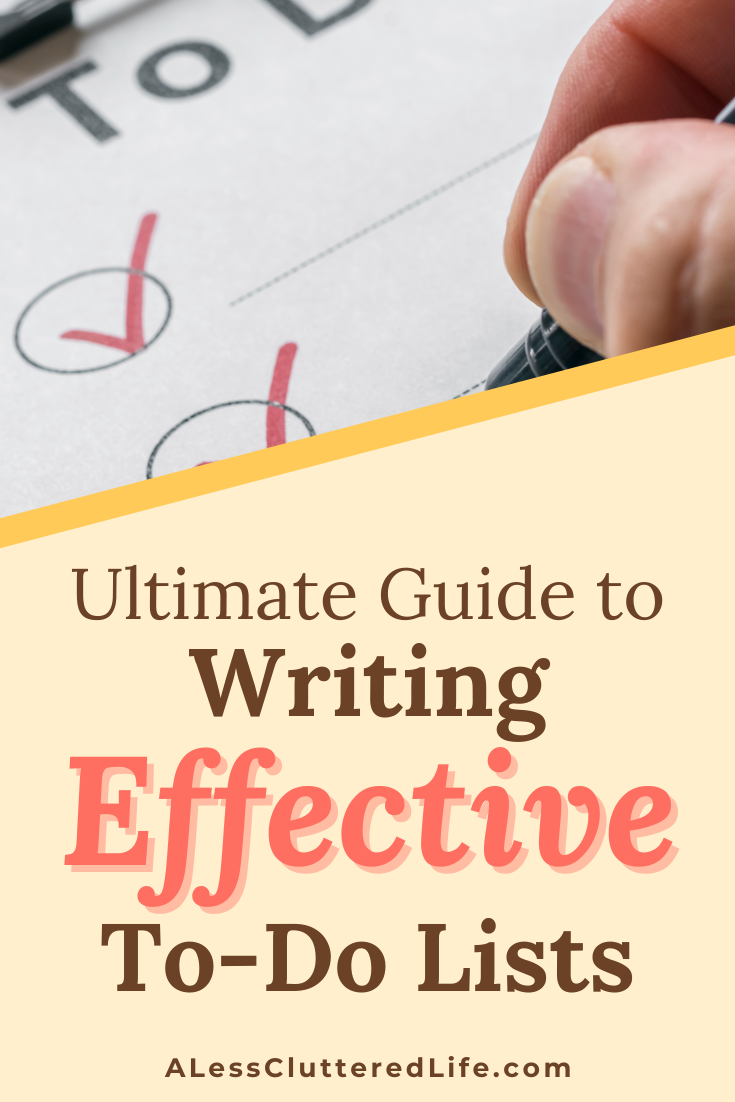
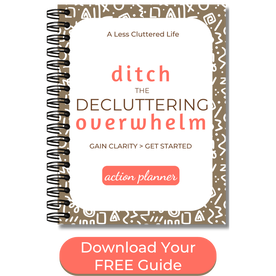

 RSS Feed
RSS Feed
